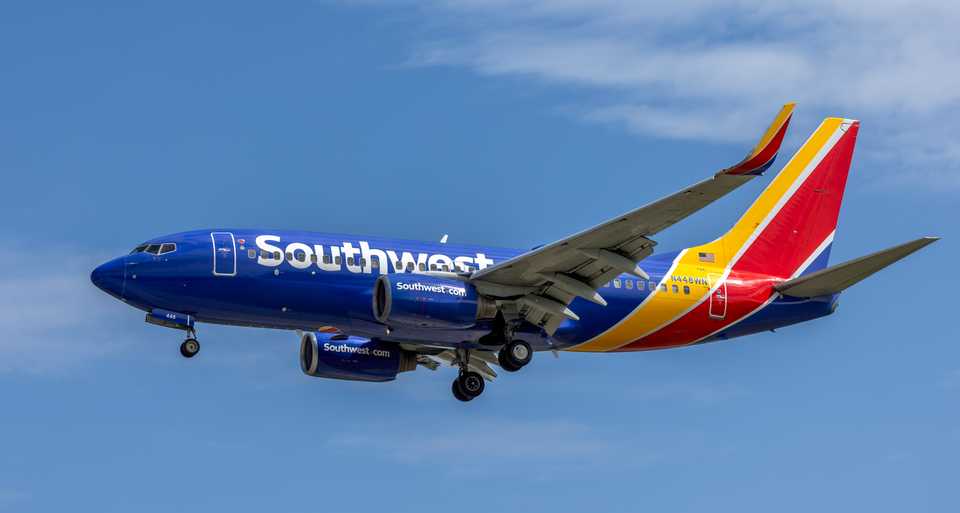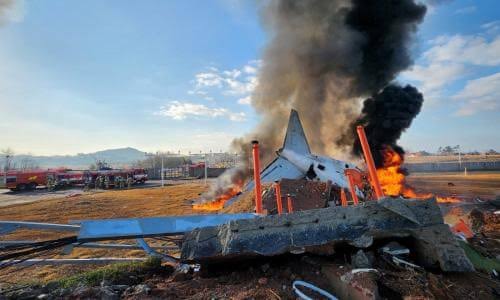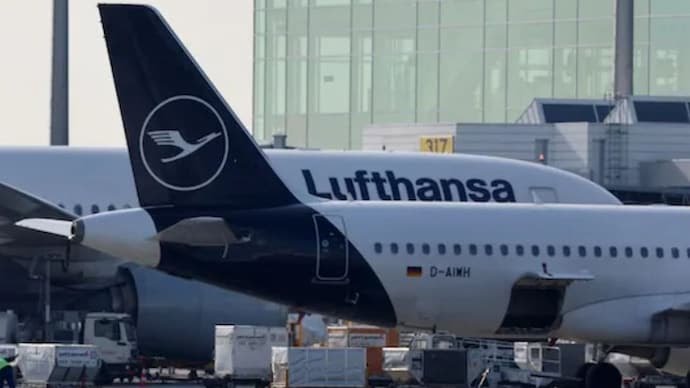Southwest Airlines CEO Grounds All Flights After Devastating Crash Claims Multiple Lives
In an unprecedented move that has sent shockwaves throughout the aviation industry and across the nation, Southwest Airlines CEO Robert Jordan has announced the immediate cancellation of all flights operated by the airline following a tragic crash that claimed numerous lives. The incident marks one of the darkest days in the airline’s history and has prompted intense scrutiny, grief, and questions about airline safety protocols.
The Tragic Incident
The disaster occurred on [Insert Date], when Southwest Flight 3827, en route from Denver, Colorado to Phoenix, Arizona, reportedly experienced catastrophic mechanical failure mid-air before crashing into a remote area near Flagstaff, Arizona. Eyewitnesses reported hearing a loud explosion in the sky, followed by debris and flames descending rapidly toward the ground.
Emergency responders rushed to the crash site but found no survivors among the estimated 139 passengers and 6 crew members onboard. Federal investigators from the National Transportation Safety Board (NTSB) and Federal Aviation Administration (FAA) arrived at the scene within hours to begin examining the wreckage and searching for the aircraft’s black box data recorders.
CEO Robert Jordan’s Response
In an emotional and urgent press conference held just hours after the crash, CEO Robert Jordan announced the suspension of all Southwest Airlines flights nationwide, citing the need to prioritize passenger safety and conduct a thorough internal investigation.
> “Today, we grieve. This is a day of unimaginable sorrow for our airline family,” Jordan said, visibly shaken. “Out of respect for the lives lost and out of an abundance of caution, we are halting all operations until we can ensure the safety of our fleet and our passengers.”
The CEO expressed deep condolences to the families of the victims and vowed full cooperation with federal investigators. He emphasized the importance of transparency and accountability, promising that the airline would leave “no stone unturned” in identifying the cause of the crash.
Nationwide Disruption
The grounding of all Southwest flights has caused significant disruption across major U.S. airports. Southwest, one of the country’s largest low-cost carriers, operates more than 4,000 flights per day across North America. The sudden cancellation has stranded tens of thousands of passengers, many of whom are demanding answers and rebooking options.
At Dallas Love Field, Southwest’s main hub, emotional scenes played out as travelers were informed of mass cancellations. Airline representatives distributed vouchers, arranged accommodations, and provided emotional support services at key terminals.
> “I understand why they did it,” said Melissa Greene, a passenger who was due to fly to Chicago. “But it’s still heartbreaking, and terrifying to think this could happen to any of us.”
The Department of Transportation has since stepped in to assist with rebooking efforts and to ensure that stranded passengers are provided with necessary accommodations and compensation.
Investigating the Cause
While the exact cause of the crash remains under investigation, early speculation points to a potential engine failure or structural fault. Witnesses have described a fiery explosion coming from the plane’s left engine shortly before the aircraft began descending rapidly.
According to aviation safety experts, mechanical failures of this nature are rare in commercial aviation. However, the crash has reignited discussions around aircraft maintenance, inspection procedures, and the pressures of fast turnarounds in low-cost carriers.
The aircraft involved in the crash was a Boeing 737-800, a workhorse of the Southwest fleet. The FAA confirmed that the plane was last inspected two weeks before the crash and had passed all regulatory maintenance checks.
> “We are currently retrieving the flight data and cockpit voice recorders,” said NTSB Chair Jennifer Homendy. “Our team will analyze every piece of evidence to determine what went wrong and how we can prevent a recurrence.”
Public and Political Reaction
Reactions have poured in from across the political and aviation spectrum. President [Insert Name] issued a statement offering condolences and expressing support for the investigation. Members of Congress have called for emergency hearings into airline safety standards and fleet maintenance practices.
> “This is a national tragedy,” said Senator Maria Cantwell, Chair of the Senate Committee on Commerce, Science, and Transportation. “We owe it to the victims and the flying public to ensure that our skies are safe.”
Social media has been flooded with tributes to the victims, as well as criticism directed at both Southwest Airlines and aviation regulators for perceived lapses in oversight. Hashtags such as #SouthwestCrash and #AirSafetyNow trended globally within hours.
Airline History and Reputation
Southwest Airlines, founded in 1967, has long held a reputation for affordability, customer service, and a strong safety record. While the airline has experienced occasional incidents in the past, none have been as deadly or as high-profile as the crash of Flight 3827.
Aviation analysts note that this event could severely damage the brand’s reputation, potentially resulting in lawsuits, regulatory action, and a loss of consumer trust.
> “This is a defining moment for Southwest,” said Richard Abrahams, an aviation industry consultant. “How they respond—both operationally and ethically—will shape the company’s future.”
Next Steps and Timeline
As of now, there is no official timeline for when Southwest Airlines will resume operations. CEO Robert Jordan has indicated that flights will remain grounded until investigators provide preliminary findings and the airline has re-inspected its fleet.
> “Safety is our number one priority,” Jordan reiterated. “We will not resume flying until we are absolutely confident in the integrity of our aircraft.”
The NTSB has stated that a preliminary report may be available within two weeks, though full investigations can take several months.
In the meantime, Southwest has established a crisis hotline for families of victims and affected passengers: 1-800-SWA-HELP. Counseling services are also being offered through partner organizations and at key airport locations.
Final Thoughts
As the nation mourns this tragic loss, the aviation community faces a somber reminder of the importance of rigorous safety standards, timely maintenance, and transparent leadership. The crash of Southwest Flight 3827 will undoubtedly leave a lasting impact on the airline, its passengers, and the future of air travel in the United States.
For now, the skies are quiet for Southwest Airlines. But the echo of this tragedy will be felt for years to come.





